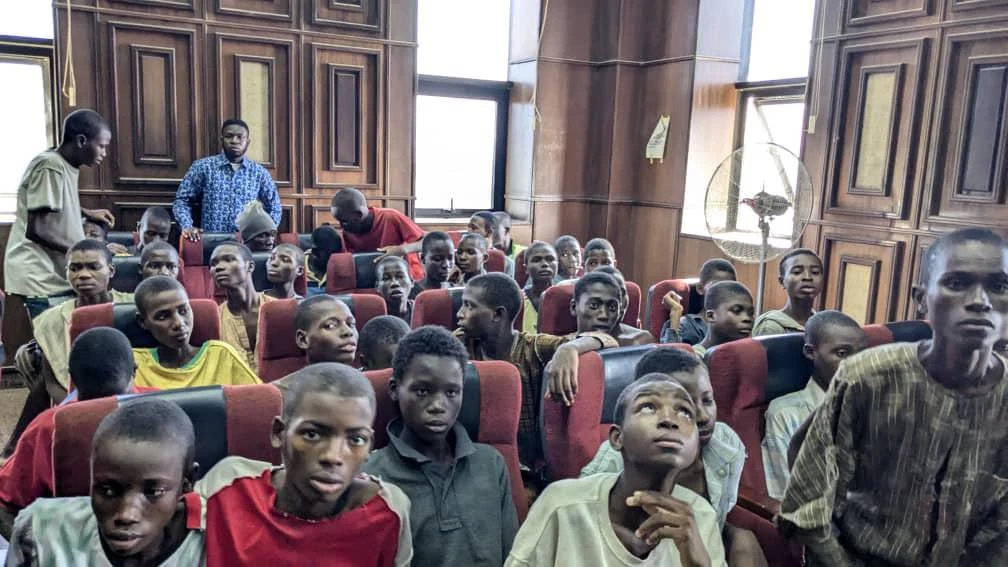32 minors charged with treason amid Nigeria’s protest crackdown sparks national outrage over justice, child rights, and government’s response to civil dissent.

Nigerians are reeling with outrage over the recent arraignment of 76 protestors, including 32 minors, who were charged with serious crimes like treason and incitement to mutiny. Arrested during August's #EndBadGovernance protests, the young defendants – visibly weak, unkempt, and malnourished – were presented in court after nearly three months of detention.
The incident has raised serious concerns over the Nigerian justice system’s treatment of minors and its approach to civil dissent.
The Arrest and Arraignment: What Happened?
The protests against worsening economic conditions and calls for better governance erupted across multiple states, including the Federal Capital Territory, Kaduna, Gombe, and Kano. These protests, held from August 1-10, 2024, voiced demands for food security, reduction of government spending, and reinstatement of the petrol subsidy. Unfortunately, the protests saw sporadic violence and looting, leading to widespread arrests.
This past Friday, these 76 detainees were brought before Justice Obiora Egwuatu of the Abuja Federal High Court. The charges against them included conspiracy to commit treason, destabilize the state, and incite mutiny.
As the session began, the state of the minors – many of whom had not eaten in days – took center stage. Four collapsed from malnutrition and were removed for urgent medical care, prompting the judge to temporarily suspend the hearing. After some deliberation, Justice Egwuatu granted bail for the adult defendants, while the minors were remanded at a juvenile detention center.
Reactions from Legal Experts and Civil Rights Groups
The arraignment of children under such severe charges has stirred an intense response from civil society organizations, rights activists, and prominent lawyers. The Nigerian Bar Association (NBA), led by President Afam Osigwe, strongly condemned the actions, stating, “This treatment violates not only the Child Rights Act but international human rights standards.” Osigwe argued that the minors’ prolonged detention and harsh conditions reflect poorly on Nigeria’s criminal justice system, painting a picture of inhumanity that could harm Nigeria’s reputation globally.
Prominent lawyers, including Senior Advocates of Nigeria (SAN) Isiaka Olagunju and Festus Ogun, also criticized the government’s approach. Olagunju stressed that the law mandates children be tried in family courts, not in a Federal High Court, citing the Child Rights Act, which protects minors from such proceedings. Olagunju highlighted, “Detaining these children for over 48 hours without due process is a violation of the law.” Ogun called the arraignment "shameful" and argued it reflects an unyielding response from the government toward underprivileged minors seeking to express their constitutional rights.
Political Leaders and Public Figures Speak Out
The event has garnered attention from political leaders who have openly criticized the government’s actions. Former Vice President Atiku Abubakar compared the sight of the malnourished children in court to the horrors of “Nazi concentration camps,” lambasting the government’s disregard for the fundamental rights of children.
Similarly, Labour Party presidential candidate Peter Obi pointed out that Nigerian leaders, especially those who once championed democracy, should be more tolerant toward peaceful dissent. “A nation’s strength is measured by how it treats its most vulnerable,” Obi remarked, calling for justice and humanity in handling such cases.
Conclusion
The arraignment of 32 minors on treason charges is more than just a legal case; it is a moment that calls for national introspection. The situation raises urgent questions: What kind of future are we preparing for if our children’s cries for help and change are met with such extreme measures? And what does it say about the state of democracy in Nigeria?
As Nigerians voice their discontent, it’s essential that the government listens – not just for the sake of its international reputation but for the well-being of its own citizens.

